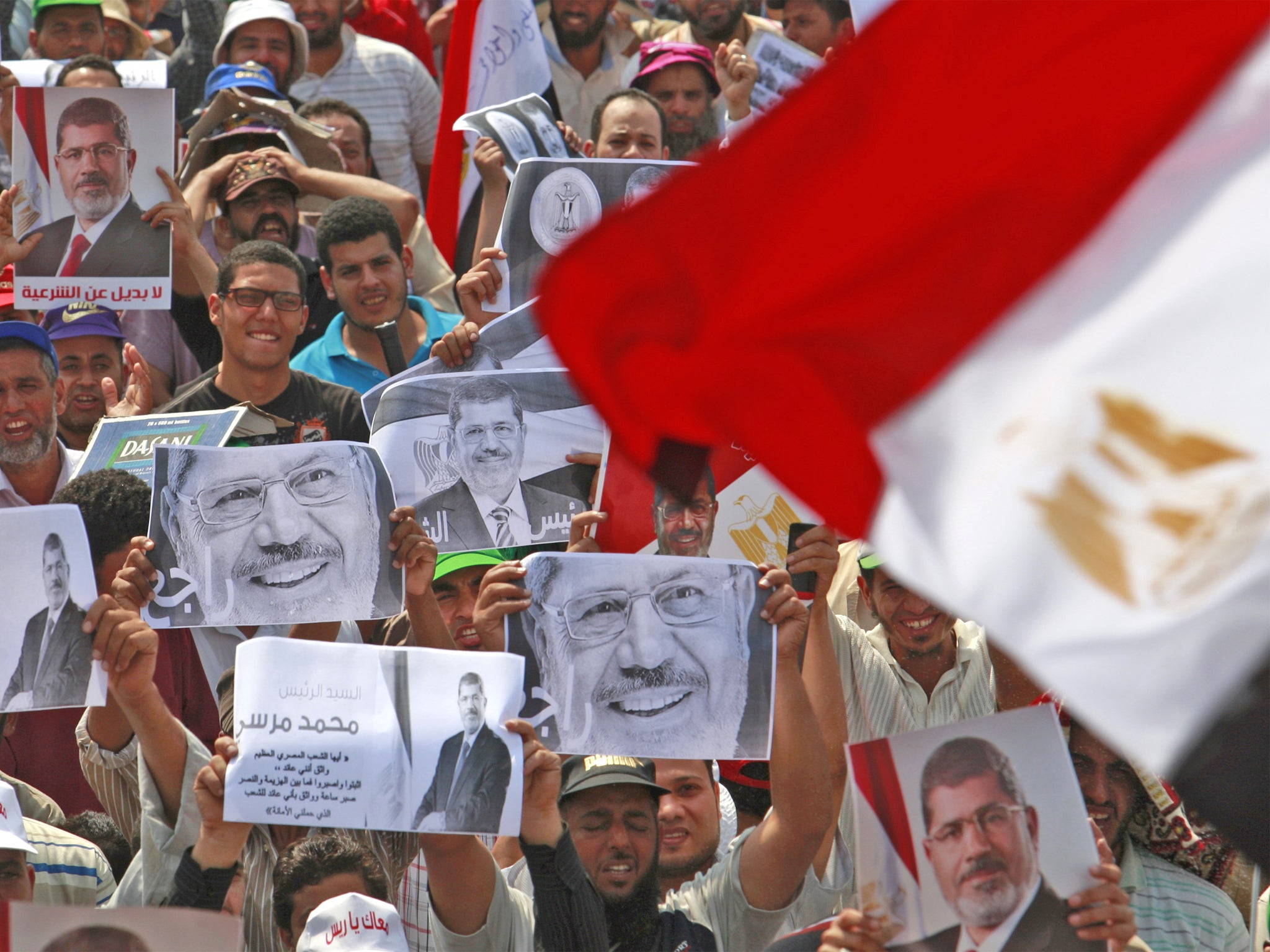Divisions – and defiance – take hold in former Egyptian President Mohamed Morsi’s back yard

Your support helps us to tell the story
From reproductive rights to climate change to Big Tech, The Independent is on the ground when the story is developing. Whether it's investigating the financials of Elon Musk's pro-Trump PAC or producing our latest documentary, 'The A Word', which shines a light on the American women fighting for reproductive rights, we know how important it is to parse out the facts from the messaging.
At such a critical moment in US history, we need reporters on the ground. Your donation allows us to keep sending journalists to speak to both sides of the story.
The Independent is trusted by Americans across the entire political spectrum. And unlike many other quality news outlets, we choose not to lock Americans out of our reporting and analysis with paywalls. We believe quality journalism should be available to everyone, paid for by those who can afford it.
Your support makes all the difference.A group of village children scampered behind the coffin as it was driven past some mud-brick stables. Inside was the body of Dr Sayeed Abdel Salaam. Until last week he had been a 42-year-old government vet; a father-of-three who gave away much of his money to help local orphans, according to friends. Today he became a statistic – a battered and bloodied victim of the 30 June insurrection.
“I cannot express my feelings,” said Mohamed Demerdash, 37, who was waiting for his friend’s body as it made its way to the Al-Rahman mosque in Hana, a village deep in the Nile Delta. “I am so pessimistic about the future.”
Last week Dr Sayeed had joined a march in Zagazig, the city about 20 minutes’ drive from Hana which is also the provincial home of Mohamed Morsi.
Thousands of Mr Morsi’s supporters had gathered for a rally in support of the ousted leader. A large proportion were women; many of the men had travelled down to Cairo for the larger rallies taking place there. Like many other cities across Egypt over the past week, the protest soon descended into violence when marchers were set upon by locals armed with rocks and knives.
Four people were later reported killed. Dr Sayeed was one of them, his skull repeatedly clubbed by his attackers. Almost inevitably in this dangerously polarised society, the most basic facts of last Thursday’s violence were pawed over by local officials. Followers of the Muslim Brotherhood said the attack was carried out by “thugs” and was entirely unprovoked.
But speaking to The Independent, one official from the liberal Dostour Party claimed that women had been seen carrying weapons and insulting passers-by.
It demonstrates the widening divisions exacerbated by the massacre of 55 pro-Morsi civilian protesters in Cairo on Monday morning. In the wake of the killings, Egypt’s state press offered scant criticism of the military. But many private channels, who have often been highly critical of the Muslim Brotherhood, also appeared to play down the bloodshed.
In contrast to when 28 demonstrators, most of them Christians, were killed by the army and security services during the “Maspero massacre” of October 2011, some activists have appeared all too willing to absolve the army and blame the Brotherhood.
Fair or not, it reflects the bitterness that now separates Egypt’s warring factions. In Zagazig, the door of Morsi’s nine-storey apartment block was locked. On the walls nearby, some of the more polite graffiti declared him a “son of a dog”.
Arriving from a nearby demonstration, the local head of the Muslim Sisterhood – the Brotherhood’s female branch – was defiant. “We will stick to the squares and the streets until we regain our democracy,” said Dr Hanan Abdel-Rahman. “We will never surrender.”
Join our commenting forum
Join thought-provoking conversations, follow other Independent readers and see their replies
Comments